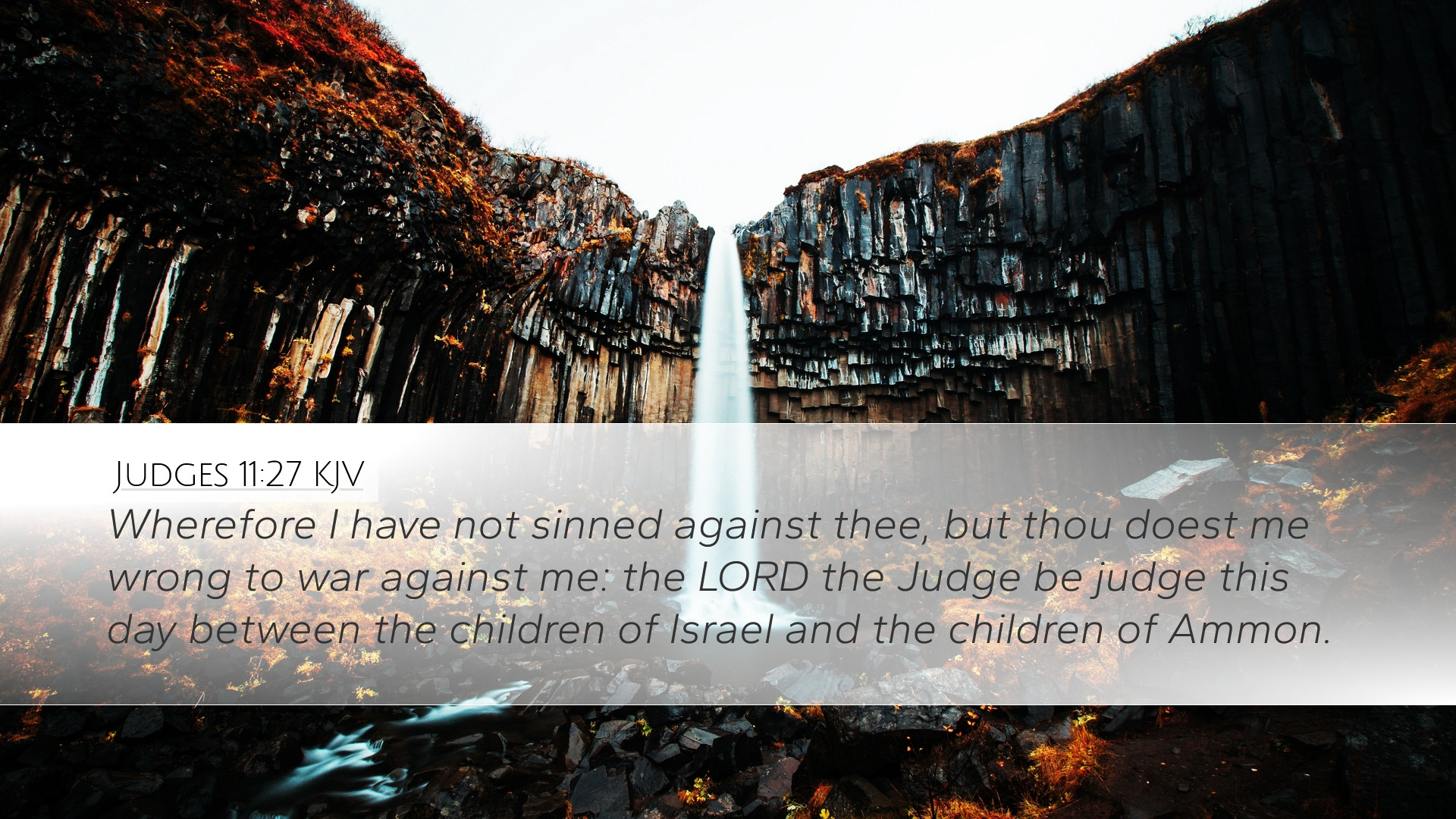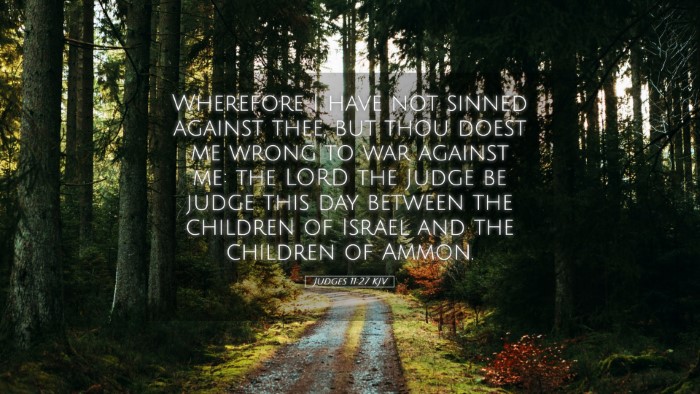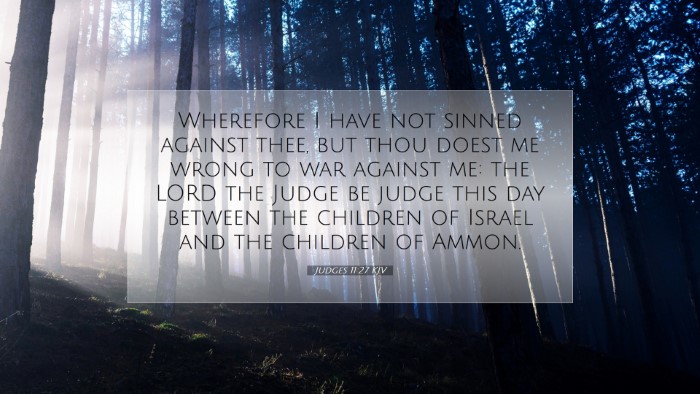Commentary on Judges 11:27
Verse Text: "Therefore I have not sinned against you, but you do me wrong to war against me. The Lord, the Judge, be judge this day between the children of Israel and the children of Ammon."
Introduction
Judges 11:27 presents a crucial moment during Jephthah's conflict with the Ammonites. The verse highlights both the legalistic stance of Jephthah and his reliance on divine justice. It serves as an important text for understanding the broader themes of conflict, justice, and divine intervention in the Book of Judges.
Contextual Background
The events of Judges unfold during a tumultuous period in Israel's history. The nation, fragmented and struggling for identity, is often depicted as falling into sin followed by oppression. Jephthah, a Gileadite, rises as a Judge to deliver Israel from the oppression of the Ammonites. His declaration in this verse is pivotal, as it encapsulates the tension between human conflict and divine authority.
Exegesis and Analysis
Legal Declaration
Jephthah's assertion of innocence—“I have not sinned against you”—is a form of legal defense. Scholars like Matthew Henry emphasize that Jephthah seeks to establish his position based on righteousness as opposed to aggression. He reminds the Ammonites that the conflict rests upon their unjust initiation.
Divine Judgment
The invocation of the Lord as the ultimate judge articulates a significant theological principle. Jephthah appeals to God as the arbiter of justice, showcasing his understanding that ultimately, all disputes are settled in the heavenly court. Albert Barnes comments on this by highlighting the importance of divine acknowledgment in human affairs. Jephthah's phrase “The Lord, the Judge” suggests a profound trust in God’s sovereignty and fairness, serving as an appropriate reminder for contemporary believers regarding divine governance over earthly matters.
Conflict and Wrongdoing
Jephthah acknowledges the wrongdoing of the Ammonites against Israel. His battle is positioned not just as a matter of territory but as a right to defend against unjust aggression. Adam Clarke notes the importance of moral clarity in conflict, indicating that Israel's response is framed not as a punitive expedition but as a necessary defense of sovereignty. This distinction between offense and defense leads to deeper theological reflections on the nature of righteousness in warfare, calling future generations to critically examine their justifications for conflict.
Theological Implications
The underlying themes in Judges 11:27 have implications for modern theological discussions. It serves as a reminder of the importance of seeking justice and being guided by righteous motives. As Matthew Henry suggests, believers are called to align their actions with God’s standards of justice, where moral integrity must underpin all human conflicts.
Practical Applications
- Conflict Resolution: Jephthah's invocation for God’s judgment can encourage contemporary discussions in church communities about resolving disputes through prayer and seeking divine direction.
- Justice in Leadership: As leaders in various contexts, the call to act righteously, as demonstrated by Jephthah, must influence decision-making processes, urging pastors and leaders to reflect God’s justice in their communities.
- The Role of Divine Intervention: The assurance that God presides over conflicts invites modern believers to trust in His sovereignty, particularly during challenging circumstances where human understandings of justice may fail.
Conclusion
Judges 11:27 encourages a closer examination of justice, moral integrity, and the role of divine intervention in conflicts. Jephthah’s plea acts as a reflective point for believers, urging a commitment to righteousness not solely in personal conduct but also in communal and national contexts. The connections drawn from commentaries such as those by Barnes, Henry, and Clarke present this text as timeless, urging current and future generations to seek divine clarity and justice in all matters.


